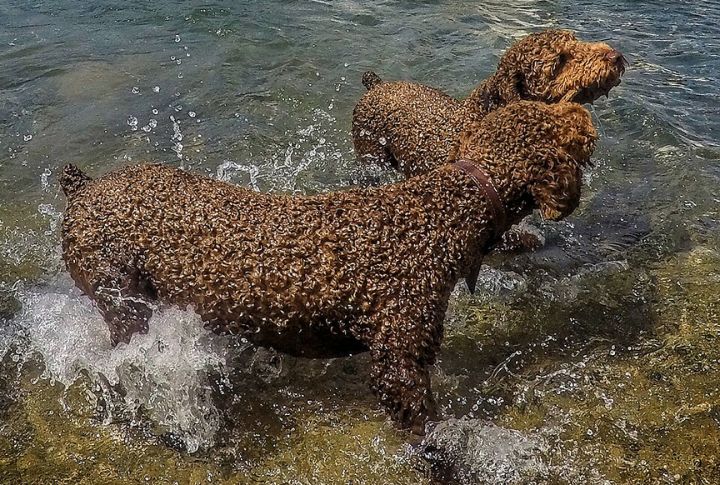10 Essential Tips To Keep Your Spanish Water Dog Happy And Healthy

Your Spanish Water Dog deserves more than the usual pet care routine—they need attention that matches their unique spirit. A few thoughtful moves can keep them glowing with energy and looking their best. Forget complicated tricks; it’s all about consistency and understanding. Curious what really works? Here are 10 key tips to keep them thriving.
Genetic Risk Of Progressive Retinal Atrophy (PRA)
Spanish Water Dogs are prone to progressive retinal atrophy (PRA), a hereditary eye disease that can lead to early vision loss. Because it’s inherited, responsible breeding and early testing are key. Ask your vet about DNA screening if you’re planning to breed, or regular eye exams to catch changes early.
Prevalence Of Hip Dysplasia In The Breed
Hip dysplasia, a hereditary joint disorder, poses a common risk for Spanish Water Dogs and can lead to pain and limited mobility as they age. Early screening helps manage symptoms effectively. Maintaining a healthy weight and incorporating moderate exercise can also significantly support joint health and reduce discomfort in affected dogs.
Breed-Specific Vulnerability To Hypothyroidism
Certain breeds, including Spanish Water Dogs, are more prone to thyroid issues that slow metabolism. Owners might notice extra pounds, tiredness, or coat dullness. Once diagnosed, simple daily medication paired with regular checkups helps manage the condition effectively and regain strength to maintain steady health.
Recommended Vaccination Schedule For Spanish Water Dogs
Following the core vaccination schedule, covering distemper, parvovirus, adenovirus, and rabies, is vital for Spanish Water Dogs. Boosters maintain lifelong immunity, while veterinarians may recommend extra vaccines based on lifestyle. Conveniently, some vaccines are combined into one injection, which protects this breed efficiently against preventable and potentially severe infectious diseases.
Ear Canal Maintenance To Prevent Moisture-Related Infections

Due to their love of water and dense ear hair, Spanish Water Dogs are prone to ear infections if moisture remains trapped. Regular ear checks and thorough drying after swimming are essential. These preventive steps keep the ear canals healthy and help avoid painful, moisture-related ear infections.
Grooming Protocol For Their Curly, Wool-Like Coat
The Spanish Water Dog’s unique, curly coat demands careful grooming to maintain texture and prevent matting. Rather than brushing, it should be trimmed or clipped regularly. Some owners even shear the coat once or twice a year, a practice that mirrors traditional sheep shearing while keeping the coat clean and healthy.
Breed-Appropriate Exercise Regimen To Prevent Joint Stress
Gentle, low-impact activities like walking or swimming help strengthen joints and improve flexibility. High-impact activities should be limited in puppies to protect developing joints. Swimming, in particular, provides excellent low-stress conditioning that helps it stay fit while minimizing joint wear and strain.
Nutritional Guidelines For Maintaining Ideal Weight And Coat Health
What goes into the bowl directly shows up in how the coat looks and how the body performs. High-quality proteins and essential fats work quietly beneath the surface, which promotes strength and gloss. Even simple portion control helps maintain stamina without putting extra pressure on the joints.ht gain.
Dental Health Risks And Preventive Care Specific To The Breed
Like many breeds, Spanish Water Dogs can develop dental disease without consistent oral care. Tartar buildup leads to gum inflammation and potential tooth loss. Routine brushing combined with professional care keeps dental issues from escalating. This preventive attention ultimately saves money and unnecessary stress during vet visits down the line.
Annual Breed-Specific Health Screenings And Diagnostic Panels
Annual veterinary screenings are recommended for Spanish Water Dogs to detect hereditary or breed-specific health concerns early. Diagnostic panels may include hip evaluations, eye exams, and thyroid function tests. Early detection through these checks supports long-term wellness, while responsible breeders usually share health screening results for transparency and trust.





